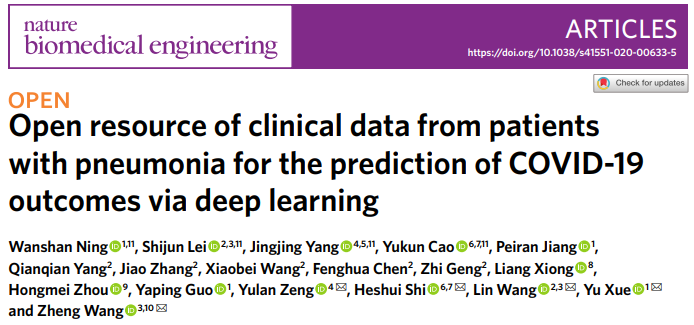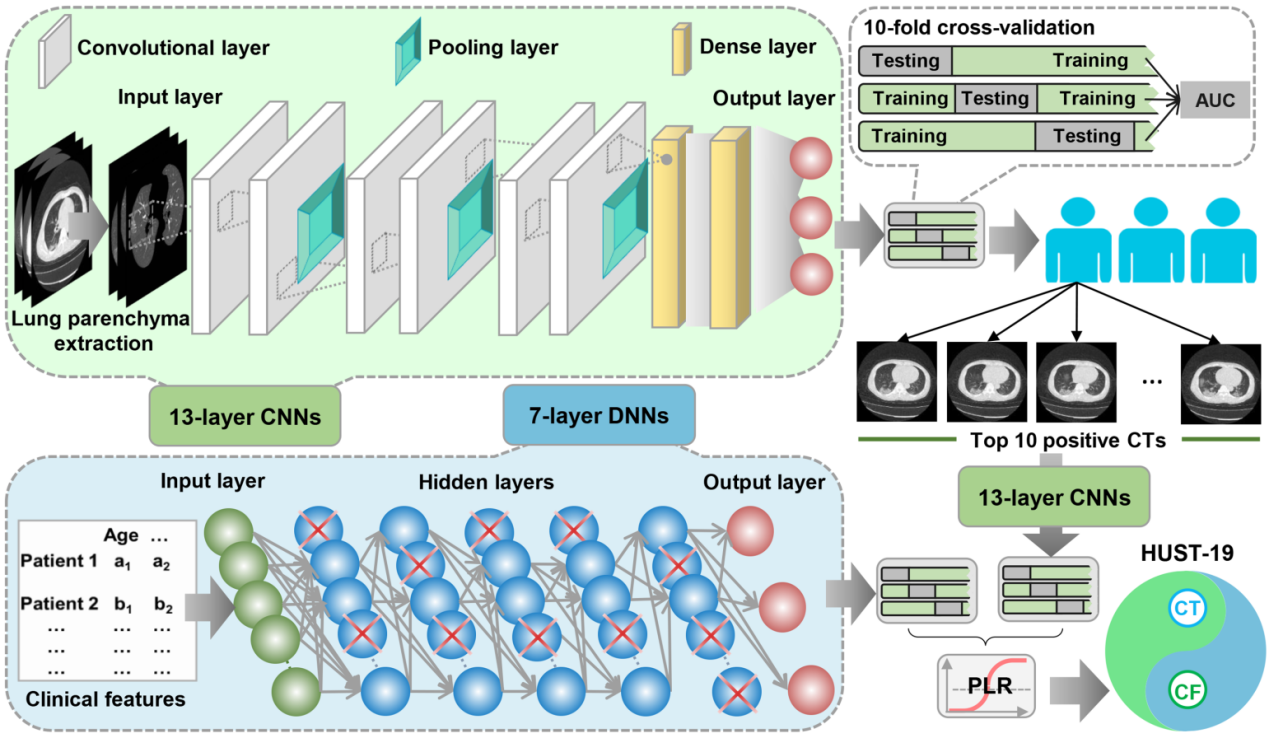By the end of November 18, 2020, more than 200 countries and regions were affected with more than 55 million confirmed coronavirus disease 2019 (COVID-19) pneumonia cases and more than 1.33 million deaths. Across many COVID-19-stricken regions, it appears to be common that limited medical resources and a large number of quickly piled-up patients result in long waiting time for diagnosis and medical decisions, such as quarantine or hospitalization, which potentially increases the chance of cross-infection and leads to poor prognosis. Although COVID-19 confirmation relies on real-time polymerase chain reaction (RT-PCR) detecting existence of SARS-CoV-2, it is difficult to assess the morbidity and mortality outcomes of the patient. In addition, the World Health Organization reports that 80% of COVID-19 patients are mild, but the mortality rate of critically ill COVID-19 cases can even reach more than 50%. Therefore, predicting the condition and death risk of COVID-19 patients will help the reasonable allocation of medical resources and timely clinical intervention, so as to control the spread of the epidemic and reduce the severe rate and mortality of patients. Studies have shown that many clinical features (CFs) and chest computed tomography (CT) characteristics of patients are correlated with the severity of COVID-19 pneumonia. Therefore, Data from patients with COVID-19 are essential for guiding clinical decision-making, for furthering the understanding of this viral disease, and for diagnostic modelling.
Recently, Professor Lin Wang, Professor Zheng Wang and Professor Heshui Shi from Union Hospital of Huazhong University of Science and Technology (HUST), Professor Yu Xue from the College of Life Science and Technology of HUST, and Director Yulan Zeng from Liyuan Hospital of HUST have adhered to the concept of "integration of medicine and industry" and taken the advantages of multidisciplinary research to successfully jointly develop the COVID-19 AI diagnosis system. The article related to the research has been published online in the internationally renowned journal Nature Biomedical Engineering (https://www.nature.com/articles/s41551-020-00633-5)

The study collected, integrated, annotated and classified the massive chest CT and CFs of more than 1,500 COVID-19 patients. After completely removing personal privacy information, we develop the first COVID-19 database named iCTCF (http://ictcf.biocuckoo.cn/) to archive chest CT images, 130 types of CFs and laboratory-confirmed SARS-CoV-2 clinical status from 1521 patients with or without COVID-19 pneumonia, reaching a data volume of 265.1 GB. On this basis, we build a novel framework of Hybrid-learning for UnbiaSed predicTion of COVID-19 patients (HUST-19) to predict the clinical outcomes. The HUST-19 can not only accurately determine whether a patient is infected with the COVID-19, but also accurately predict the severity of the disease and the potential death possibility. Using HUST-19, we successfully predicted and diagnosed suspected cases that have not yet been confirmed by nucleic acid testing. HUST-19 can be a powerful diagnostic tool to the prevention and control of the COVID-19 epidemic in my country and even the world.

PhD student Wanshan Ning from the College of Life Science and Technology of HUST, Doctor Shijun Lei and Yukun Cao from Union Hospital of HUST, and Master student Jingjing Yang from Liyuan Hospital of HUST are the co-first authors of the paper. Professor Lin Wang, Professor Zheng Wang and Professor Heshui Shi from Union Hospital of HUST, Professor Yu Xue from the College of Life Science and Technology of HUST, and Director Yulan Zeng from Liyuan Hospital of HUST are the co-corresponding authors. This research is supported by the National Natural Science Foundation of China, the Frontier Exploration Program of HUST, the program for HUST Academic Frontier Youth Team, and the Fundamental Research Funds for the Central Universities.